Michelle Tea’s Queer Space with Homemade Cookies
Poet and writer Michelle Tea has been both a P&W–supported writer and presenter of literary events. Her many books include a poetry collection, novels, and memoirs. Tea's novel, Valencia, won the 2000 Lambda Literary Award for Best Lesbian Fiction. Tea founded the literary nonprofit RADAR Productions and co-founded the spoken word tour Sister Spit. We asked her a few questions about her experience as a writer and reading series curator.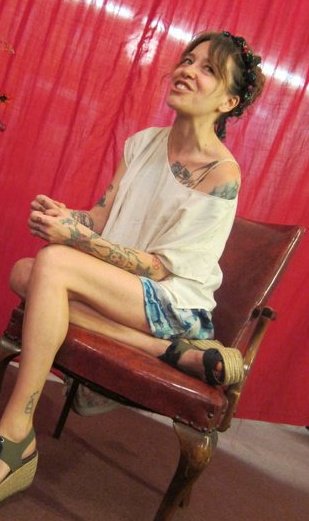 What are your reading dos?
What are your reading dos?
Be relaxed! Audiences are as interested in YOU as they are in your piece. Ad-libbing through the work (if the work allows for it) is generally charming; some of my favorite readers will break off the page and address the audience in a spontaneous, natural way.
What are your reading don’ts?
Don't take it so seriously. You are not delivering a testimony to Congress. Don't speak in POETRY VOICE. You know what I mean. There are writers whose work I enjoy on the page, but I can't listen to them read it because that inflection makes me leave my body.
How do you prepare for a reading?
I don't, unless you count neurotically changing my mind about what I'm reading and wearing "preparation." I call it mental illness. Not everything works best aloud. I try to not feel the audience too much because it’s easy to mistake silence for boredom, and then I get nervous and start acting desperate. I try to read as if everything I'm delivering is AMAZING.
What’s the strangest interaction you’ve had with an audience member?
Sometimes a person thinks that just because you are comfortable reading something sexual in the very specific and controlled environment of a reading, it means you are down for discussing sex with random strangers. And I actually enjoy that no more than the average person, which is to say, not much.
What’s your crowd-pleaser, and why does it work?
They all seem to revolve around shock. In Rose of No Man's Land, it's when a character throws her dirty tampon at a boy who is harassing her. In Valencia, it’s an unusual sex scene. In Rent Girl, it’s a very funny fake orgasm contest between two prostitutes—which allows me to caw like a bird whilst performing, so I like it, too.
What makes the RADAR Reading Series unique?
My reading series has been running for almost nine years. I mix up my readers—unpublished, published, well-known, emerging, and I bring in graphic novelists, video artists, and photographers. It's free. There’s a Q&A segment, and I hand out homemade cookies to whoever asks questions. (There are always questions!)
It's queer like a queer bar—anyone can go in, but you know it’s a space that has prioritized queer people. As a queer person I spend tons of time in straight spaces where queers are welcome, but the spaces are straight, even though often they aren't designated as such because straight people aren't accustomed to thinking about space like queers are. RADAR uses that model—yes, of course everyone is welcome, but the space, the event, is queer.
What do you consider to be the value of literary programs for your community?
My immediate community is a queer community that still suffers from a lack of representation in all media, especially literary, even in San Francisco. The value of having a place you can go to see elements of your experience and community reflected back at you in a thoughtful, honest, artistic manner is HUGE. I was just passing through San Francisco when I came here in 1993, but the reason I stayed is that the work I do—writing, curating events, and promoting other writers—is so supported here. And it's supported in part by Poets & Writers, so thank you!
Photo: Michelle Tea. Credit: Food For Thought Books.
Major support for Readings/Workshops in California is provided by The James Irvine Foundation. Additional support comes from the Friends of Poets & Writers.





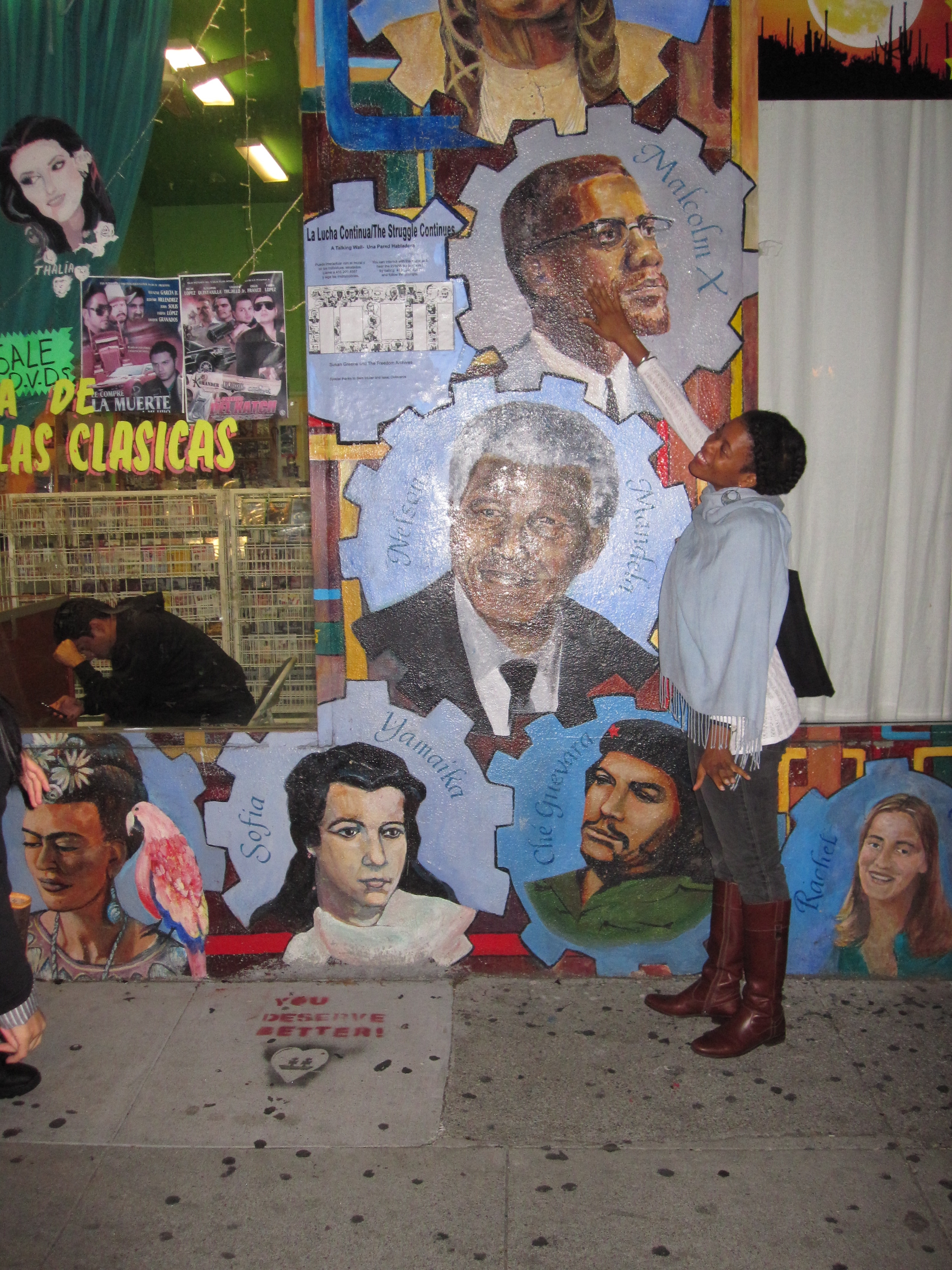 The inspiration flows in both directions. Just as frequently as I find myself using my teaching practice to inform my artistic practice, I also bring strategies, poems, questions, and obsessions from my writing life back into the classroom. If I look back at periods when I have been teaching a particular group of students and then examine the poems that I wrote during that time I can often find traceable themes and continuities. For five weeks of teaching and five weeks of writing we seemed to return to these central questions: What do we invoke? What do we want? What do we dream?
The inspiration flows in both directions. Just as frequently as I find myself using my teaching practice to inform my artistic practice, I also bring strategies, poems, questions, and obsessions from my writing life back into the classroom. If I look back at periods when I have been teaching a particular group of students and then examine the poems that I wrote during that time I can often find traceable themes and continuities. For five weeks of teaching and five weeks of writing we seemed to return to these central questions: What do we invoke? What do we want? What do we dream?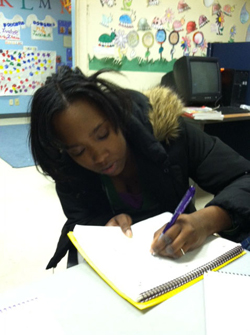 In these workshops, I am not only aware of what I receive from and give to writers, but also how the group itself develops its own identity and offers its own gifts. When we create a space that allows us to freely write about joy, pain, and longing and encourages others to listen to these often long-withheld emotions—amazing changes can happen. Regardless of differences in age and experience, we all write from a deep, secret place. And then we share, which helps us feel a growing sense of peace and helps to diminish loneliness.
In these workshops, I am not only aware of what I receive from and give to writers, but also how the group itself develops its own identity and offers its own gifts. When we create a space that allows us to freely write about joy, pain, and longing and encourages others to listen to these often long-withheld emotions—amazing changes can happen. Regardless of differences in age and experience, we all write from a deep, secret place. And then we share, which helps us feel a growing sense of peace and helps to diminish loneliness.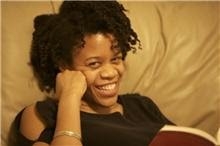 For five weeks in the fall of 2011, young women from G.E.M.S. showed up to write in community. We gathered around a table, asking unanswerable questions and drafting poems that were received with admiration, thoughtful critique, and applause. In my work as an educator, a student has never failed me. When it comes to poetry and writing, young people always have something to share—it is my job to provide a way for students to enter into a poem.
For five weeks in the fall of 2011, young women from G.E.M.S. showed up to write in community. We gathered around a table, asking unanswerable questions and drafting poems that were received with admiration, thoughtful critique, and applause. In my work as an educator, a student has never failed me. When it comes to poetry and writing, young people always have something to share—it is my job to provide a way for students to enter into a poem.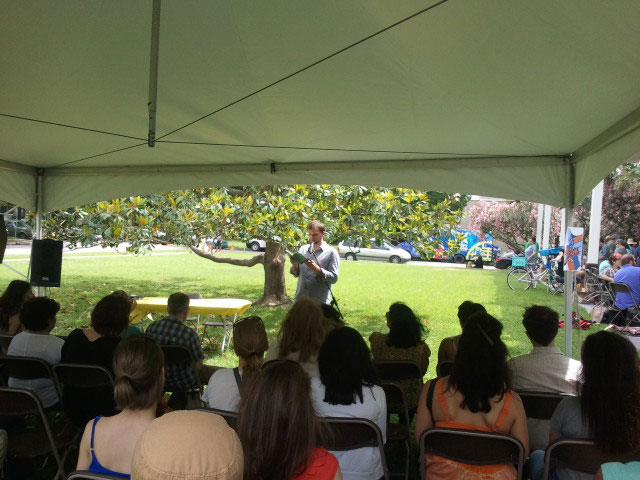 As one of the festival co-organizers, I had the opportunity to invite a few authors to visit the festival, and I tried to present authors who seemed to support the mission of the festival: to celebrate small press literature.
As one of the festival co-organizers, I had the opportunity to invite a few authors to visit the festival, and I tried to present authors who seemed to support the mission of the festival: to celebrate small press literature.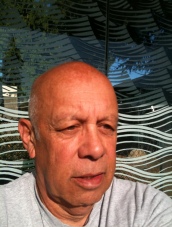 So far, we’ve come up with three events we’d like to host in the late summer or early fall. The first would be a Filipino/Latino young adult reading and workshop. We have approached
So far, we’ve come up with three events we’d like to host in the late summer or early fall. The first would be a Filipino/Latino young adult reading and workshop. We have approached 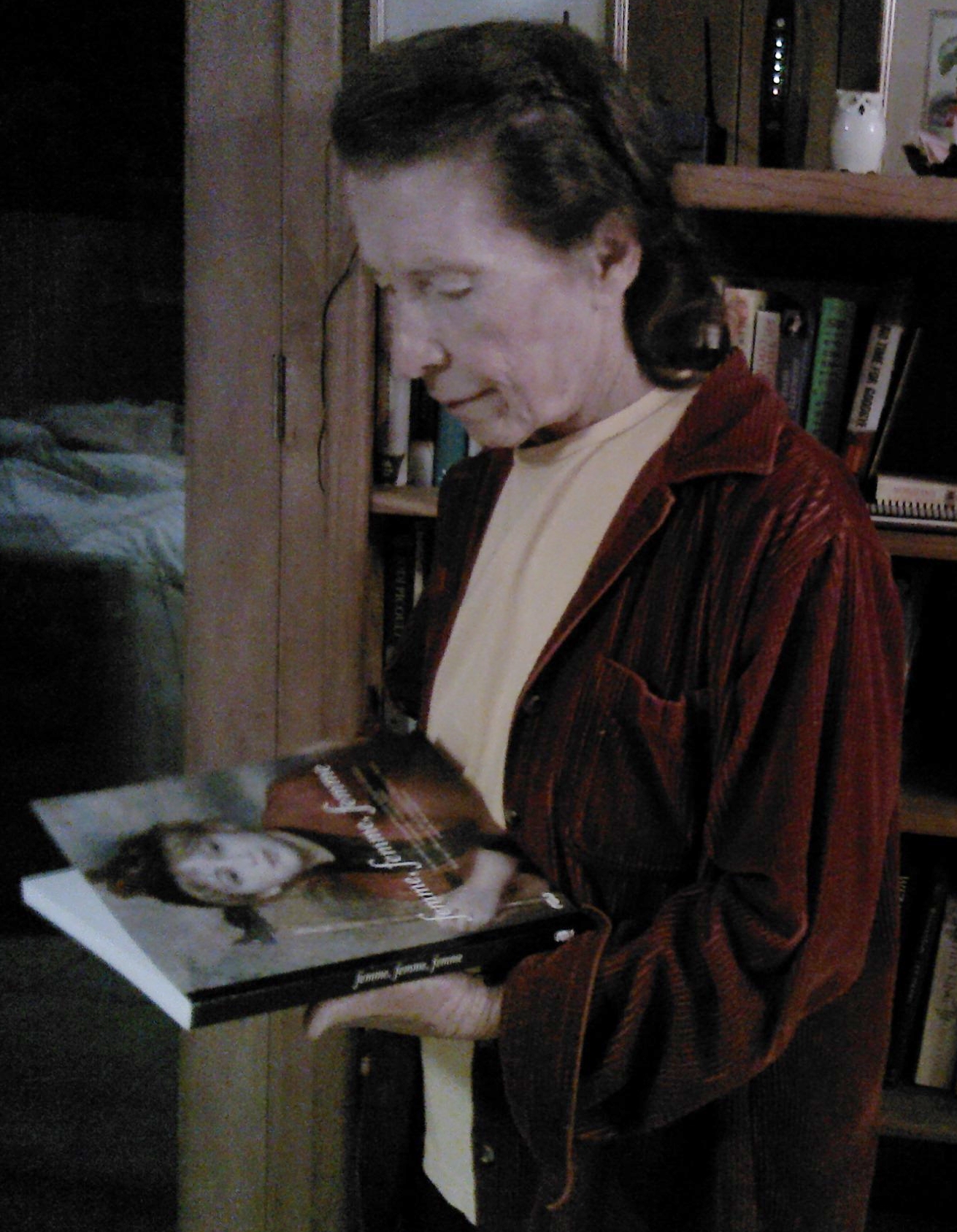 Why have you chosen to work with seniors?
Why have you chosen to work with seniors?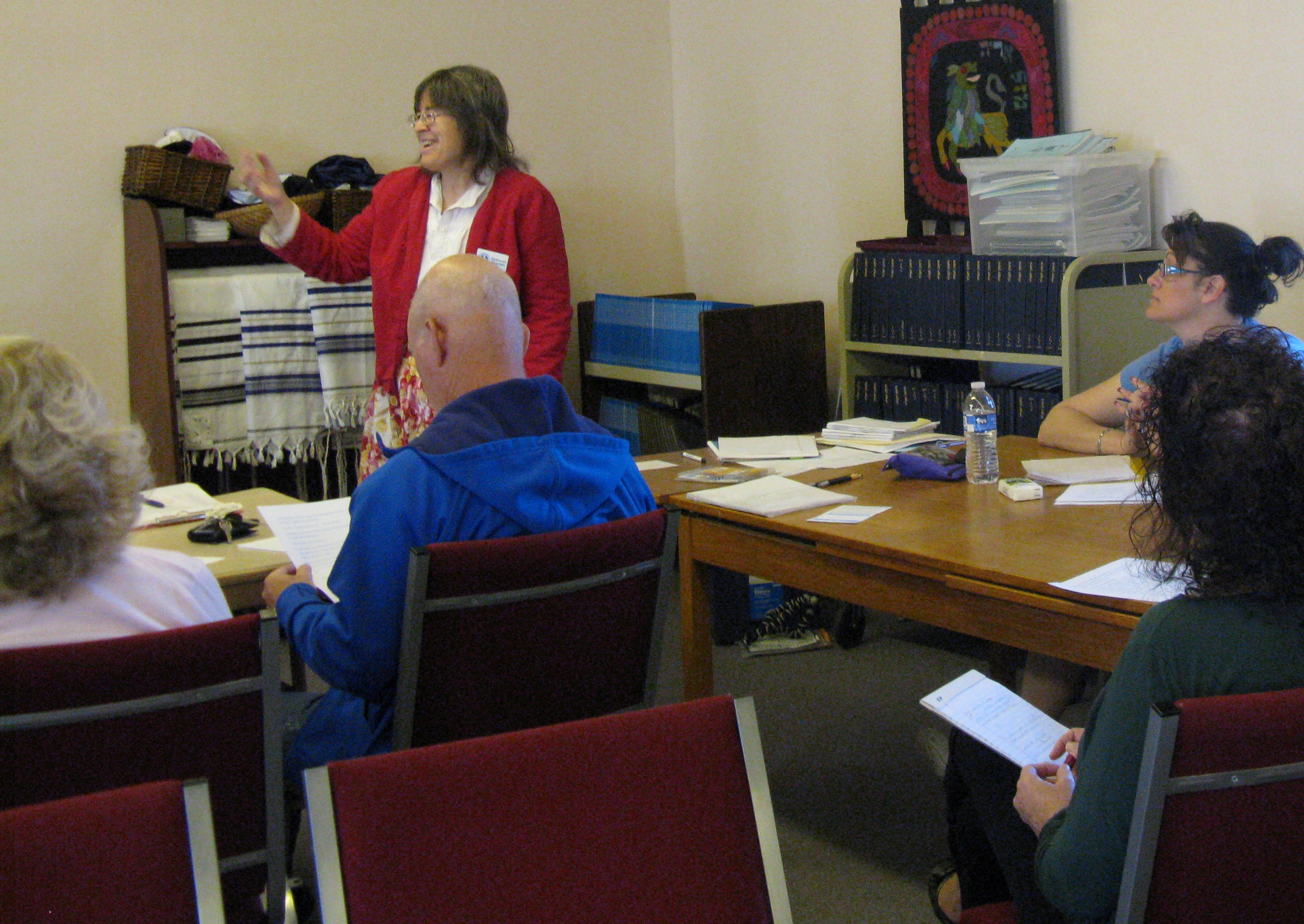 We agreed that stories can be the best legacies: They take up very little space in paper form and virtually none electronically. No one needs to dust them or move them from house to house. And when more than one person wants this legacy, there is no fighting over it; it can be shared infinitely among people.
We agreed that stories can be the best legacies: They take up very little space in paper form and virtually none electronically. No one needs to dust them or move them from house to house. And when more than one person wants this legacy, there is no fighting over it; it can be shared infinitely among people.
 I was asked to read at the P&W–supported Parachute Literary Festival in Coney Island. The coolest thing about the reading was that it was held at the
I was asked to read at the P&W–supported Parachute Literary Festival in Coney Island. The coolest thing about the reading was that it was held at the